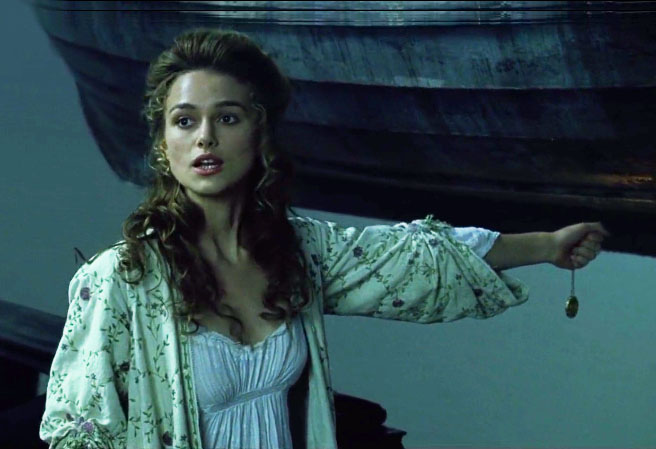Paradoxical Zombie Pirates of the Caribbean
April 13, 2015
Much as I love the Pirates of the Caribbean (the first movie), its plot is based on a self-contradiction. See, the pirates are zombies who can’t feel anything, yet they are relentlessly driven to find the last piece of Aztec gold to lift their curse. It’s a contradiction because they “feel” a great need to overcome their lack of feeling. They desperately want to start wanting again.
The contradiction arises because physical pleasure is the same thing as motivation. Maybe most people don’t make this connection, but if you think about it for a while, it should be obvious. The pleasure circuit in your brain is like the gas pedal in a car – it makes you go and keep on going. A pleasurable signal tells you to continue what you’re currently doing. By the same token, pain is like the car’s brake. It tells you to stop!
Thus, we might wonder why the pirates even care that they’re cursed. Why do they strive to lift the curse? If they feel no pleasure, they shouldn’t have any motivation. Likewise, if they feel no pain, nothing should bother them. Again, they have no motivation to get rid of their curse.
At one point, Elizabeth is about to drop her gold medallion over the side of the ship, and she lets it slip a bit, and the pirates all moan in protest. They clearly feel great distress at the thought of that precious medallion being lost beneath the waves. So here’s the question: Why do they feel such distress about the medallion when they cannot feel any distress at being stabbed by a knife? Or also: Why would they feel pleasure on acquiring the medallion when they cannot feel pleasure from biting into an apple?
Sure, it’s just a movie, and I don’t mean to spoil anyone’s enjoyment. Actually, that’s the neat thing about movies and other fictional stories – they often act like thought experiments, and they demonstrate things or provide colorful examples of things. A really great story should help us discuss and understand philosophical issues.
How this relates to AI:
Again, pleasure means motivation and pain means negative motivation. Or to combine the two into one expression, we could say that emotion means motivation. Emotions are all about pleasure and pain, so if you have no pleasures or pains, you couldn’t have emotions either, and you wouldn’t be motivated to do anything.
If some zombie felt no pleasure or pain, there would be no point for that zombie to do anything. It wouldn’t have any energy to get up and walk around. If it did walk, it wouldn’t know where to go, because it wouldn’t have any sense of values – no pain nor pleasure – guiding its pursuit of whatever goal it was pursuing.
This reminds me of my recent discussion of Searle’s Chinese Room: Sensory input is not just raw data, but it’s the source of our pleasures and pains. Pleasure and pain give sensory input its meaning insofar as it causes us to take action in the real world. After all, we would simply ignore sensory inputs that did not spark in us any emotion.
Those charismatic Pirates of the Caribbean can’t get any sensory input from eating or drinking, or holding a woman close, and this means they also can’t feel emotions, which means they can’t have any motivations. And that means they can’t really desire to break their curse. So the whole story breaks down in a confused jumble!
Or maybe I’m wrong. Go ahead and shoot down my proposed paradox of the Pirates of the Caribbean, if you can. Meanwhile, I will be watching that old movie again!

Comments: